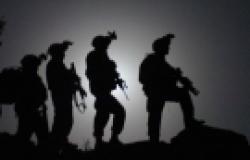Afghanistan: Troop levels, Timelines and Political Reform in Afghanistan

Noah Coburn argues that confusion over future troop levels in is affecting governance and daily life in Afghanistan as much as it is American security interests.
Last April, I stood by a polling station in the settlements lining the hills outside of Kabul with over a thousand men who waited patiently in a cold rain for four hours to vote in a newly-built police station. The election they were participating in was made possible by international funds that paid for the building and the ballots, coalition troops who support Afghan security forces in securing polling stations, and thousands of Afghan and international monitors—a scene repeated across the country.
Elections are, to many, the visual representation of democracy. These gains, however, are threatened both by an overly rapid drawdown of American forces, coupled with a lack of reform by Afghan politicians. Last week, there was an opportunity to address both worrying trends.
In the coming days, Afghan president Ashraf Ghani will meet with President Obama to discuss a slower withdrawal timeframe, leaving just under 10,000 troops at a few key bases across Afghanistan. This is good for Afghanistan and it is good for American security interests, but only if both actions are coupled with much needed political reform.
American officials, including retired military officers and USAID officials, know that American troops will greatly help the efforts in the country. These troops will help support the fledging Afghan army in their attempts to stabilize territory threatened by the Taliban, a growing number of fighters associated with ISIS, and other insurgent groups.
Troops will also help preserve some of the momentum created by international support, protecting development projects and Afghanistan’s growing businesses. They can help ensure that schools and clinics remain open, and that human rights gains, by women in particular, are not rapidly lost. These real gains could easily be lost if international troops withdraw too quickly.
Another two years of coalition troops supporting Afghans, who have only recently become responsible for security nation-wide, will allow the Afghan National Army to continue to build. Moreover, if the Afghan political elite will allow it, the government can begin political reform that is vital for stability in the country and in the region more widely.
To achieve this, President Obama and other international diplomats need to both pressure President Ghani to be more aggressive in his efforts at political reform and promise to support him diplomatically during this difficult process.
Eleven months after initial voting, the official results of last year’s election still have not been released. Instead of a clear outcome, the Afghan political elite and international community supported a bargain between Ghani and his rival candidate, now-Chief Executive Officer Abdullah Abdullah (in a position that has neither precedent nor constitutional legality). This has allowed Afghanistan to slip into a prolonged state of political limbo that benefits the ruling class but not Afghan voters or American interests.
Part of the agreement was the commitment by both gentlmen to clarify the constitutionality of the current arrangement and begin electoral reform. Over six months later, neither task has begun in earnest; instead, Afghanistan has seen prolonged political bickering over positions and resources. Parliament, as one telling example, has confirmed only two-thirds of ministers in the cabinet.
Merchants in Kabul are afraid to invest in new business opportunities since it is not clear if one pays a bribe to an official that they won’t be forced to pay a bribe to a new one a week later. Similarly, negotiations with the Taliban and other insurgents struggle to find traction when there is confusion over who from the Afghan government should actually be at the negotiation table.
To address these concerns, Ghani and other Afghan leaders need to lay out a clear plan for reforming the electoral system to ensure that such a confused result does not occur again.
Last week’s meetings represent an opportunity for American, and indeed global, interests in Afghanistan. If the US is to commit higher troop levels for a longer period of time—which is likely to lead to NATO also extending its timeframe—the Afghan government must commit to making these political reforms as well. President Obama can use these meetings to publically tie troop levels to political reforms. This will allow Ghani and Abdullah to better pressure more reticent members of the political elite to move forward. Only such combined military and political efforts will make progress in the current precarious situation.
We owe it both to Afghan voters and the American soldiers who continue to risk their lives to promote stability in the country.
Noah Coburn is a professor of political anthropology at Bennington College and a Fellow with the Truman National Security Project. He has conducted over five years’ worth of research on the ground in Afghanistan and served as an election monitor there in 2014. Views expressed are his own.
Photo credit: The U.S. Army / Foter / CC BY


